

Fibres & Fabrics
Fabric Switch: Sourcing Sustainable Viscose

Introduction
Originally marketed as artificial silk, viscose (or rayon) was the earliest man-made fibre, used in fashion for more than 100 years. It is prized for its fluid, draping qualities when woven or knitted into fabric.
Read CO's full fibre briefing on viscose for details on production and impact.
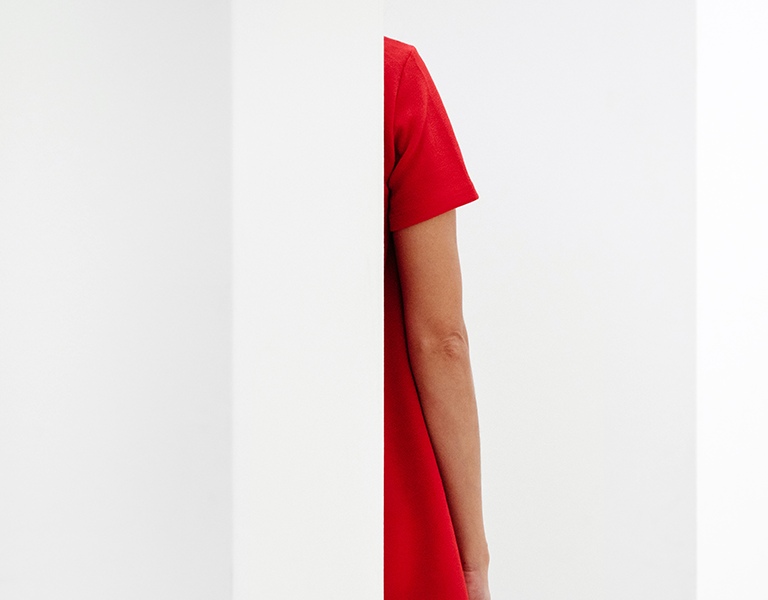
Introduction
Originally marketed as artificial silk, viscose (or rayon) was the earliest man-made fibre, used in fashion for more than 100 years. It is prized for its fluid, draping qualities when woven or knitted into fabric.
Read CO's full fibre briefing on viscose for details on production and impact.
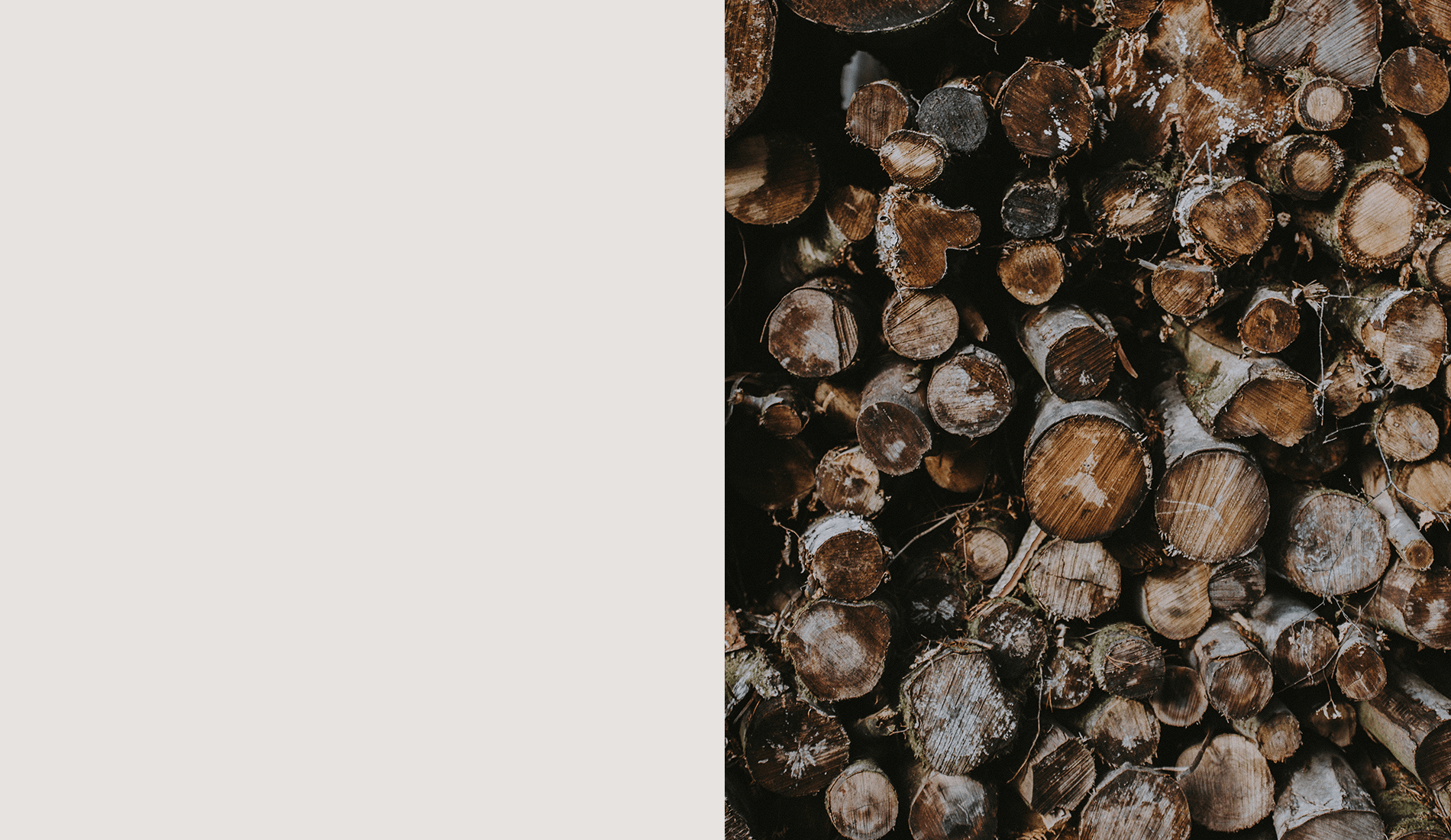
Environmental impact
Derived mainly from wood pulp and then processed with harmful chemicals, viscose has a number of negative environmental impacts, including water and air pollution.
More than 200 million trees are logged every year to turn into cellulosic fabric - often coming from unsustainable sources
Carbon disulphide and caustic soda, used in the processing of the fibre, also pose health risks to the workers in the plants
Viscose production also contributes to more greenhouse gas emissions than cotton production
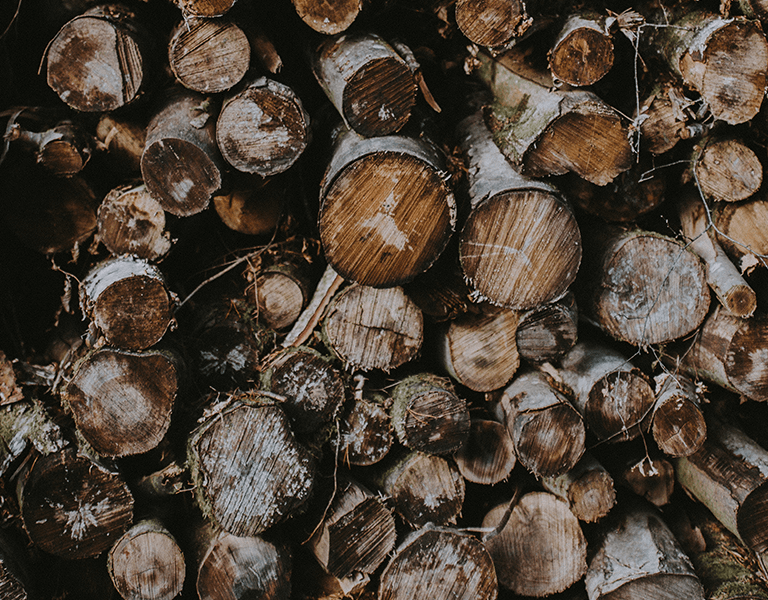
Environmental impact
Derived mainly from wood pulp and then processed with harmful chemicals, viscose has a number of negative environmental impacts, including water and air pollution.
More than 200 million trees are logged every year to turn into cellulosic fabric - often coming from unsustainable sources
Carbon disulphide and caustic soda, used in the processing of the fibre, also pose health risks to the workers in the plants
Viscose production also contributes to more greenhouse gas emissions than cotton production
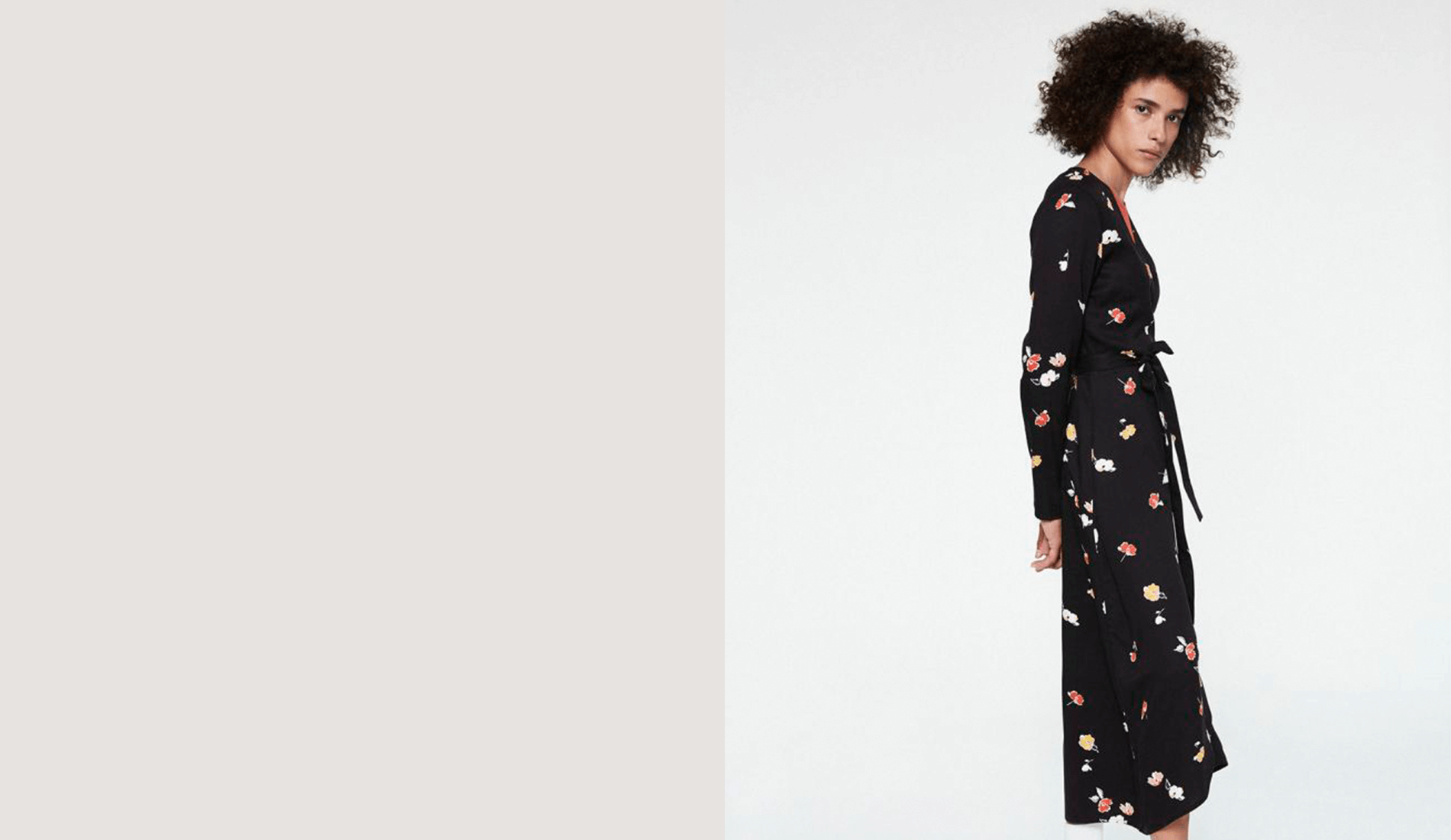
Viscose Innovators
In recent years innovations by fibre companies such as Lenzing and Birla, Singtex and QMilk have brought more sustainable alternatives to the market.
Developments tend to focus on the use of more sustainable wood pulp sources, or different raw materials altogether (e.g. coffee or milk).
Image: Armed Angels using Lenzing Ecovero
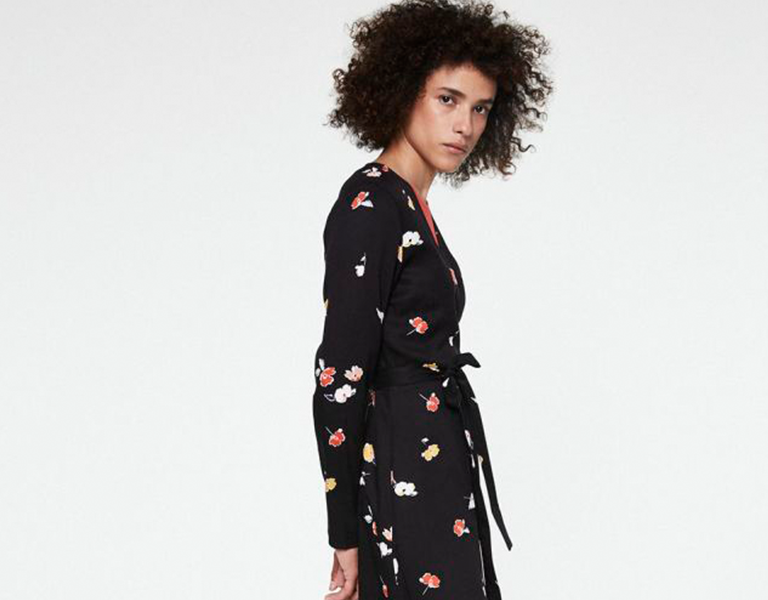
Viscose Innovators
In recent years innovations by fibre companies such as Lenzing and Birla, Singtex and QMilk have brought more sustainable alternatives to the market.
Developments tend to focus on the use of more sustainable wood pulp sources, or different raw materials altogether (e.g. coffee or milk).
Image: Armed Angels using Lenzing Ecovero
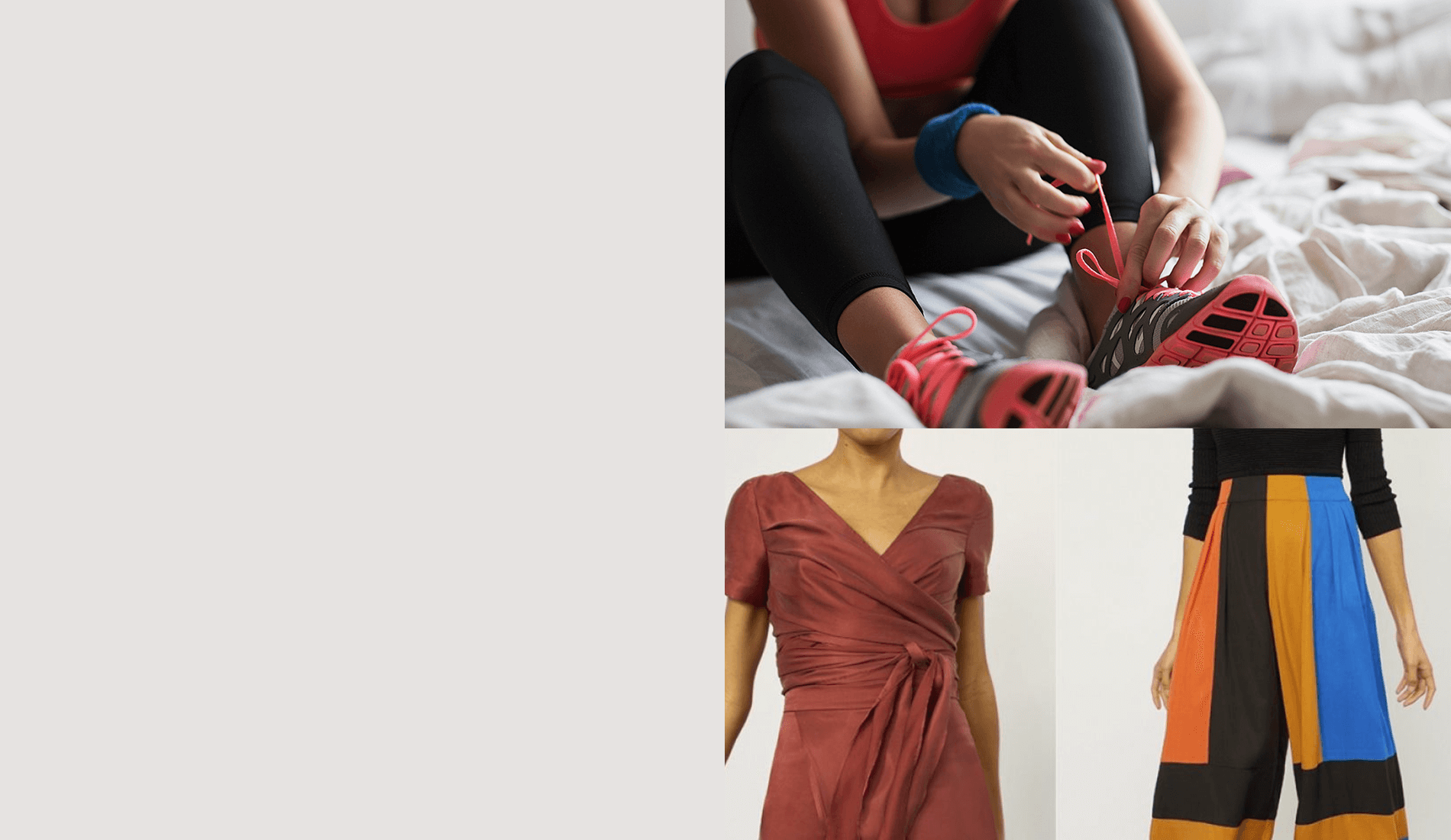
Lyocell and Modal
Lenzing's Tencel™ Modal fibres provide a similar feel, if not softer than traditional viscose, and are extracted mainly from beech wood grown on non-arable land.
And Tencel™ Lyocell, Lenzing’s sustainable lyocell offering, is made from sustainable sources including eucalyptus grown on marginal land unsuitable for food crops. The final fibres are biodegradable, making them a good alternative to synthetic fibres which shed microplastics into waterways and oceans. They also absorb moisture more efficiently than cotton, drape well, and are soft to touch.

Lyocell and Modal
Lenzing's Tencel™ Modal fibres provide a similar feel, if not softer than traditional viscose, and are extracted mainly from beech wood grown on non-arable land.
And Tencel™ Lyocell, Lenzing’s sustainable lyocell offering, is made from sustainable sources including eucalyptus grown on marginal land unsuitable for food crops. The final fibres are biodegradable, making them a good alternative to synthetic fibres which shed microplastics into waterways and oceans. They also absorb moisture more efficiently than cotton, drape well, and are soft to touch.
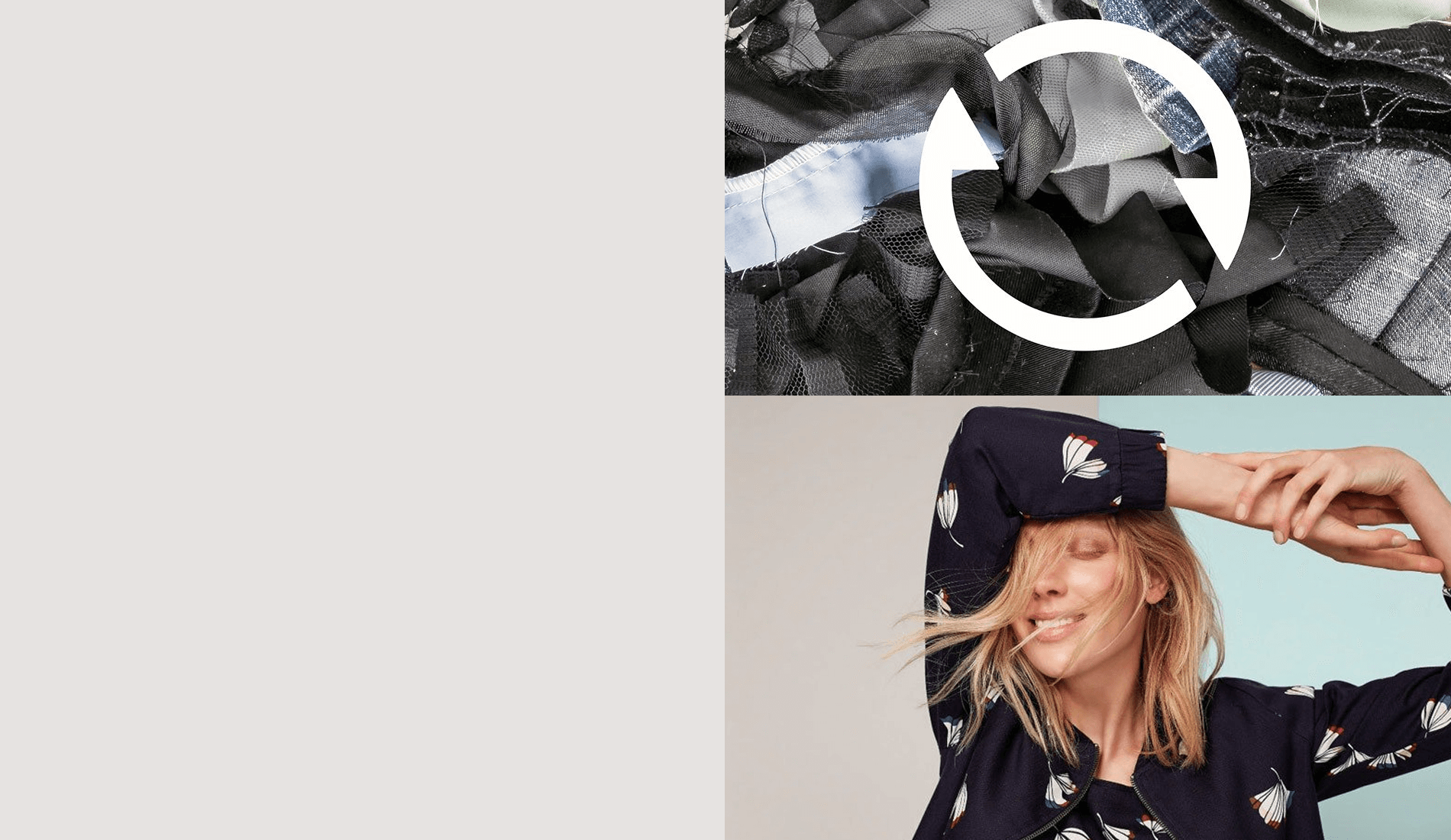
More recent fibre developments from Lenzing include:
- Refibra™ - a lyocell created from recycled cotton scraps and wood pulp
- EcoVero - made from sustainable wood sources (FSC or PEFC certified) and certified by the EU Eco Label (pictured here in an Armed Angels product)
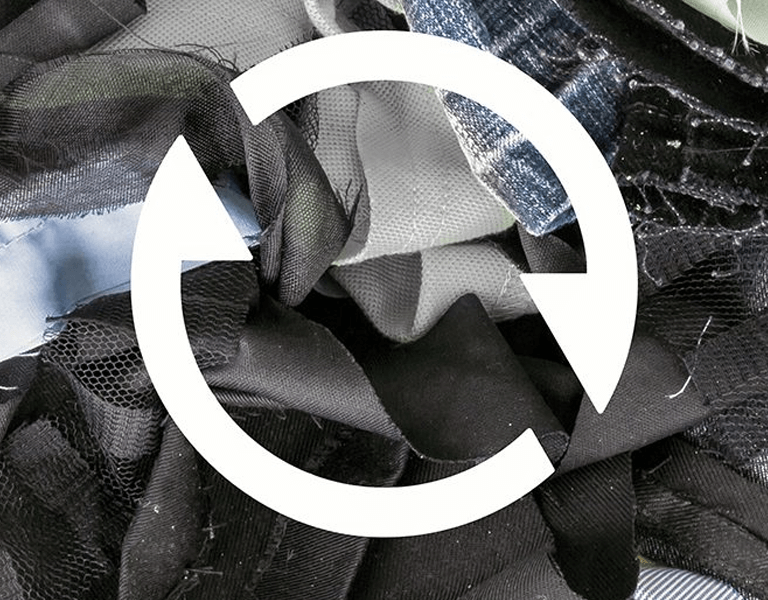
More recent fibre developments from Lenzing include:
- Refibra™ - a lyocell created from recycled cotton scraps and wood pulp
- EcoVero - made from sustainable wood sources (FSC or PEFC certified) and certified by the EU Eco Label (pictured here in an Armed Angels product)
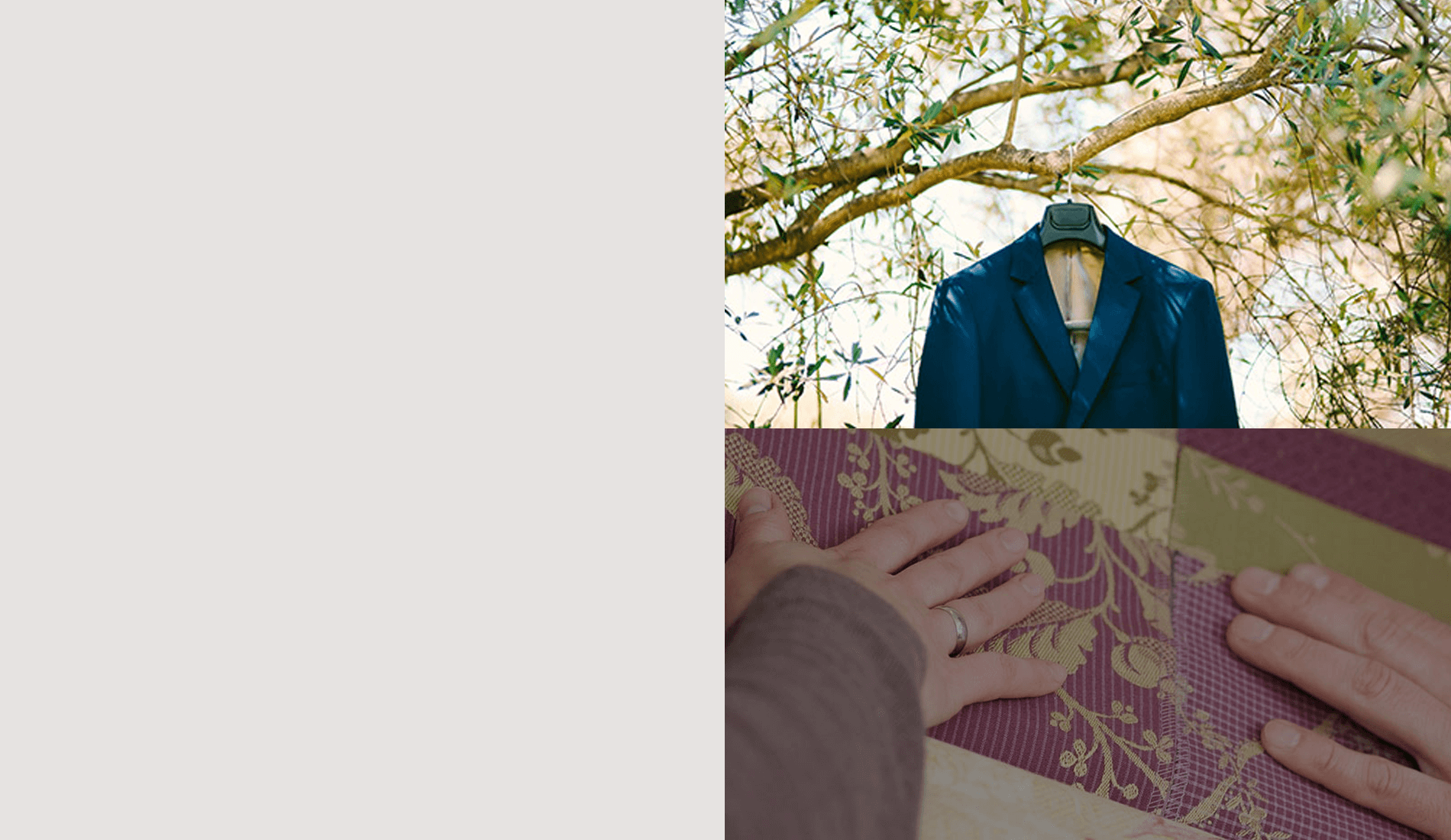
Birla Excel
Birla Excel, a third generation cellulosic fibre from the Aditya Birla Group has been independently verified by the Rainforest Alliance and applauded by forest conservation campaign, Canopy, for its industry-leading approach to raw material sourcing.
In addition to being low risk in terms of impact on ancient or endangered forest, Excel fabric is heavy metal free and unique in its high tensile strength, high absorbency, smoothness and skin-friendly qualities.

Birla Excel
Birla Excel, a third generation cellulosic fibre from the Aditya Birla Group has been independently verified by the Rainforest Alliance and applauded by forest conservation campaign, Canopy, for its industry-leading approach to raw material sourcing.
In addition to being low risk in terms of impact on ancient or endangered forest, Excel fabric is heavy metal free and unique in its high tensile strength, high absorbency, smoothness and skin-friendly qualities.
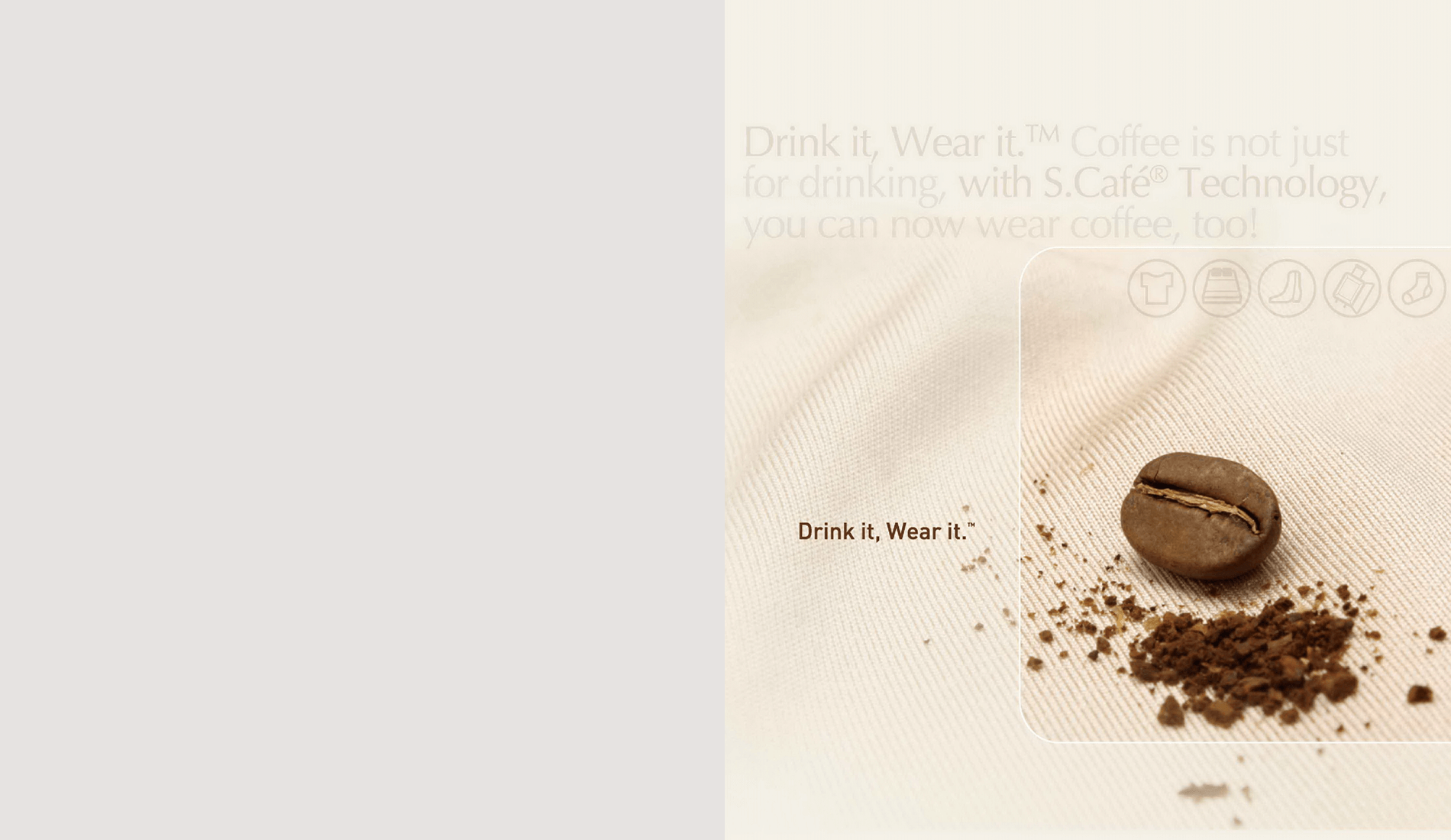
Turning coffee into clothes
Taiwan’s Singtex manufactures sustainable yarn and fabrics from spent coffee grounds under the name S.Café®.
The fast drying, UV protection and antibacterial properties of the yarn make it ideal for use in activewear and outdoor garments.
S.Cafe have partnered with over 100 brands including Vaude, American Eagle, Timberland and Patagonia.
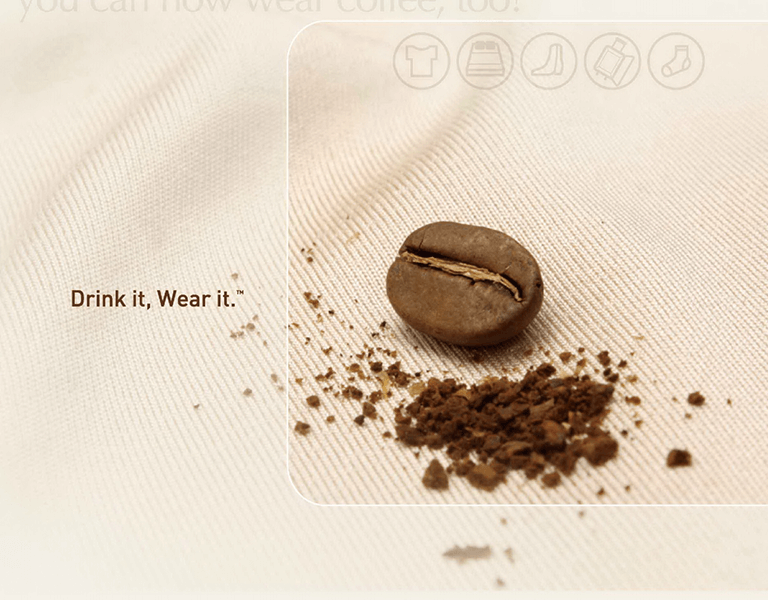
Turning coffee into clothes
Taiwan’s Singtex manufactures sustainable yarn and fabrics from spent coffee grounds under the name S.Café®.
The fast drying, UV protection and antibacterial properties of the yarn make it ideal for use in activewear and outdoor garments.
S.Cafe have partnered with over 100 brands including Vaude, American Eagle, Timberland and Patagonia.
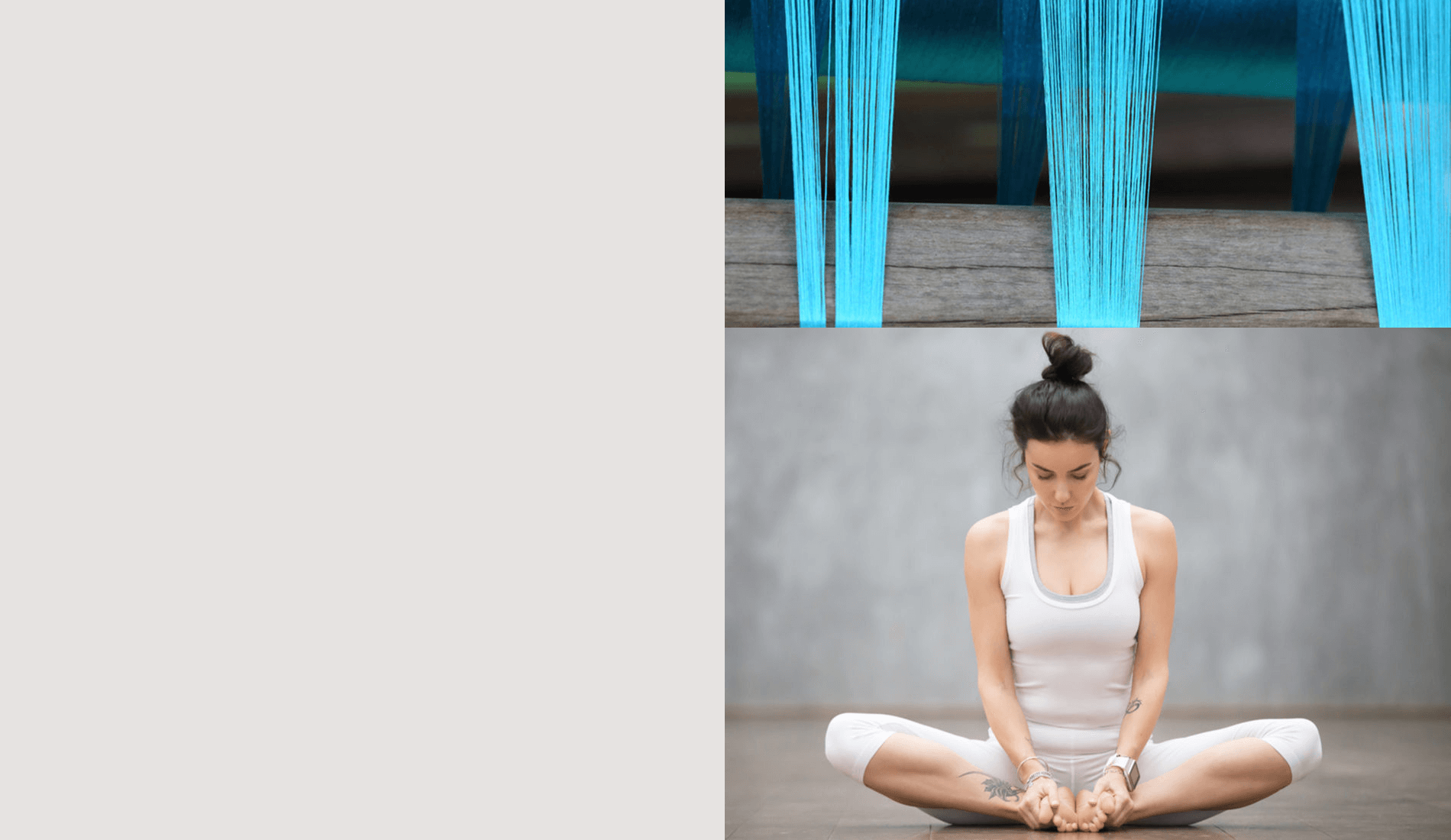
Silk from milk
Developed in Germany, QMilk is a soft, silky fabric made from milk that can be used as a viscose alternative.
It takes only two litres of water to make one kilogram of fibre and the milk comes from non-food sources which would otherwise have been disposed of.
QMilk's protein-based fabric also has thermal-bonding and natural antibacterial properties, making it a great fibre to be used on its own or blended with others.

Silk from milk
Developed in Germany, QMilk is a soft, silky fabric made from milk that can be used as a viscose alternative.
It takes only two litres of water to make one kilogram of fibre and the milk comes from non-food sources which would otherwise have been disposed of.
QMilk's protein-based fabric also has thermal-bonding and natural antibacterial properties, making it a great fibre to be used on its own or blended with others.
Related Reading
Sign up to connect with 50,000+ other sustainability-minded professionals and access over 300 pieces of actionable intelligence.
Common Objective is a global sourcing and information network that enables you to succeed in sustainable fashion business.
